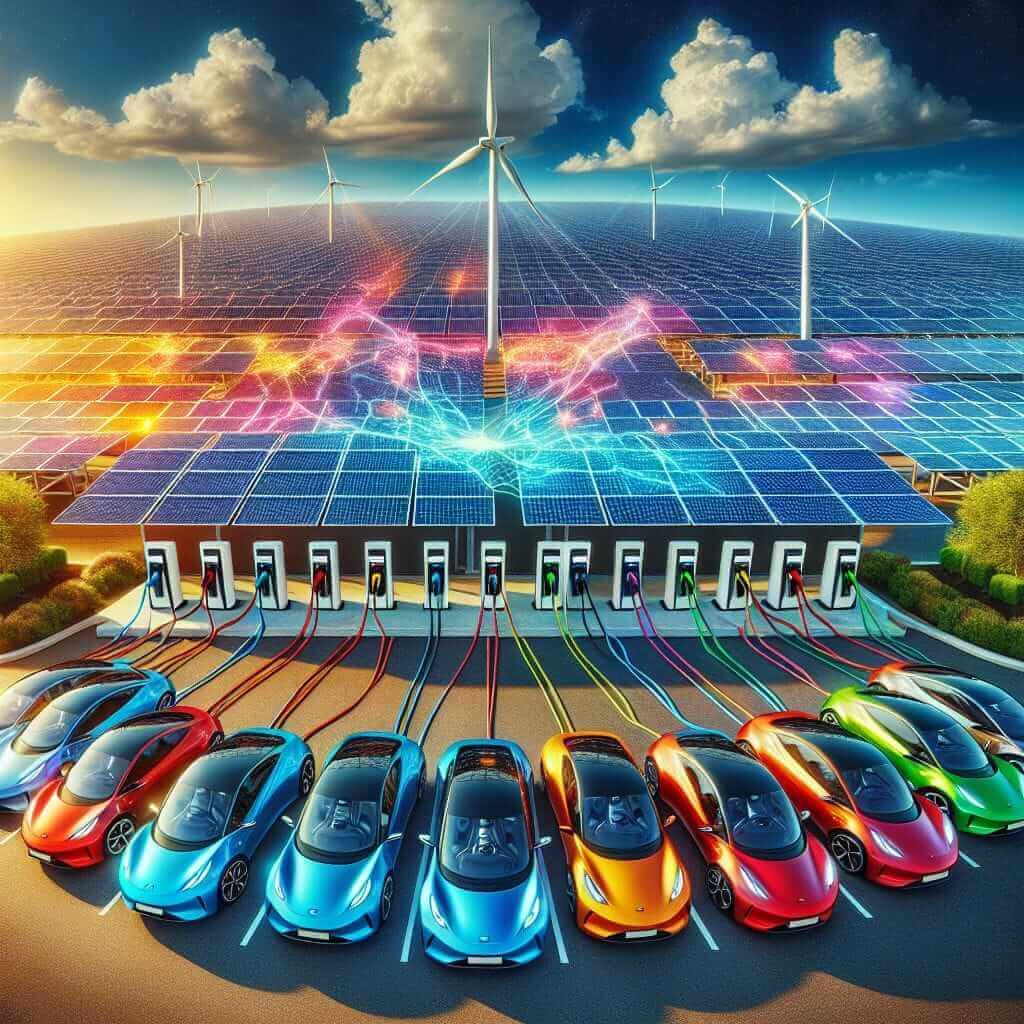The IELTS Reading section is a vital component of the IELTS exam, assessing the candidate’s abilities to comprehend and analyze written texts. Nowadays, topics related to renewable energy and its impacts on various industries are highly relevant and frequently appear in exams. Specifically, the impact of renewable energy on the transportation industry is a topic of growing importance due to its broad implications for sustainability and environmental preservation.
Historically, such topics have shown up in IELTS reading exams, reflecting the increasing global focus on sustainability. Given the trend, it is likely that candidates might encounter similar themes in future exams, making it crucial to understand this area thoroughly.
Main Content
IELTS Reading Practice Text
[Difficulty Level: Medium Text]
The transportation industry significantly contributes to global greenhouse gas emissions, accounting for around 14% of total emissions. However, the integration of renewable energy resources within this sector presents a promising solution to mitigate environmental impacts.
One notable impact of renewable energy on transportation is the development of electric vehicles (EVs). EVs eliminate the reliance on fossil fuels, reducing emissions and enhancing energy efficiency. Governments worldwide are incentivizing the use of EVs, reflecting a significant policy shift towards sustainable transportation. Furthermore, advancements in battery technology and solar-powered vehicles are revolutionizing the market, making renewable energy a feasible option for daily commutes and long-distance travel.

In addition to EVs, the use of biofuels is gaining traction. Biofuels, derived from organic materials, offer a renewable alternative to traditional gasoline and diesel. They produce fewer pollutants, and their adoption could significantly reduce the carbon footprint of the transportation sector. Renewable energy also impacts public transportation systems, with many cities adopting electric buses and trains, leading to cleaner and more efficient urban mobility solutions.
The shift towards renewable energy in transportation does face challenges, such as the high upfront costs of implementing new technologies and infrastructure. Nonetheless, the long-term benefits, including reduced dependency on oil imports and improved air quality, make it a viable pursuit.
Questions
Type: True/False/Not Given
- The transportation industry contributes around 14% to global greenhouse gas emissions.
- Electric Vehicles (EVs) completely eliminate the need for fossil fuels.
- Governments are universally against the use of electric vehicles.
- Solar-powered vehicles are a current trend in renewable energy transportation.
- Biofuels are produced from synthetic materials.
- Adopting renewable energy in transportation can decrease a nation’s dependence on oil imports.
Answer Key
- True – The text states that the transportation industry accounts for around 14% of total emissions.
- False – The text mentions that EVs eliminate the reliance on fossil fuels, but does not state they completely eliminate it.
- False – The text indicates that governments are incentivizing the use of EVs, meaning they support it.
- True – The text discusses advancements in battery technology and the emergence of solar-powered vehicles.
- False – The text says biofuels are derived from organic materials, not synthetic.
- True – The text implies reduced dependency on oil imports as a benefit of adopting renewable energy in transportation.
Common Mistakes and Tips
Common Mistakes:
- Misinterpretation of Data and Statistics: Ensure to understand the context in which figures are presented.
- Ignoring Keyword Clues: Pay attention to comparative and contrastive words like “however,” “although,” and “while.”
Vocabulary
- Mitigate (verb) – /ˈmɪtɪɡeɪt/: To make less severe, serious, or painful.
- “Renewable energy resources mitigate environmental impacts.”
- Incentivize (verb) – /ɪnˈsɛntɪvaɪz/: To provide incentives or rewards to encourage an action.
- “Governments incentivize the use of EVs.”
- Feasible (adjective) – /ˈfiːzəbl/: Possible and practical to do easily or conveniently.
- “Renewable energy is becoming a feasible option.”
Grammar Focus
Relative Clauses:
- Definition: A relative clause is a clause that normally has either who, which, that, or whose at the start and which describes a noun that comes before it.
- Example: “Governments worldwide are incentivizing the use of EVs, which reflects a significant policy shift towards sustainable transportation.”
Advice for High Scores in IELTS Reading
- Practice Regularly: Familiarize yourself with different topics and types of questions frequently asked in the IELTS exam.
- Enhance Vocabulary: Expand your vocabulary range, particularly on commonly tested themes such as renewable energy and environmental issues.
- Learn to Skim and Scan: Improve your ability to quickly locate specific information and understand the main idea of complex texts.
- Answer Strategically: Focus on understanding the question requirement before looking for answers within the text.
By following these strategies and using this practice text, you will strengthen your reading skills and boost your chances of achieving a high score in the IELTS Reading section.